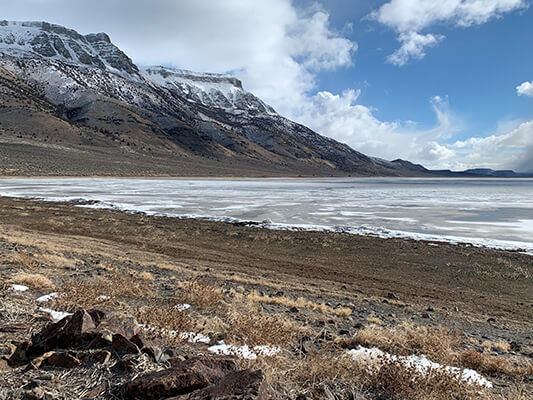 School lands have supported public education in Oregon since statehood, when Congress provided sections 16 and 36 of every township “for use of schools.” Today, the Oregon Department of State Lands manages Oregon's 681,000 acres of school lands to generate revenue for the Common School Fund.
School lands have supported public education in Oregon since statehood, when Congress provided sections 16 and 36 of every township “for use of schools.” Today, the Oregon Department of State Lands manages Oregon's 681,000 acres of school lands to generate revenue for the Common School Fund.
Land management decisions at the Department of State Lands are guided by a key policy document that has recently been updated and is now available for public comment, the Asset Management Plan.
Give feedback through April 3, 2024!
The updated plan guides the Department’s management of rangelands, forestlands, and other lands dedicated to supporting K12 public schools for generations to come.
Feedback on the proposed plan can also be provided during upcoming public meetings. The meetings will begin with an information session, followed by a public hearing. Meeting recordings and materials will be made available on the DSL website:
Info Session and Public Hearing (Online)
Tuesday, March 12, 2024
Info Session and Public Hearing (in-person only in Burns, Oregon)
Thursday, March 14, 2024 at 6:00 p.m.
Harney County Chamber of Commerce
484 North Broadway Avenue Burns, Oregon 97720
This 2024 Asset Management Plan is different from previous plans in the following ways:
- Increases focus on renewable energy, partnership projects, wildfire resiliency, and strategic action in land management.
- Shifts the focus from sale of low performing lands to maintaining and improving the lands retained by the Department.
- Adds four new land classifications specific to Department programs to better define what lands are covered in this plan and to help with Department reporting.
- Excludes lands managed by other Department programs. Other programs manage an additional 93,000 acres, all of which are statutorily dedicated lands. Management of state-owned waterways, statutory lands managed by the South Slough Reserve, and the Elliott State Forest are not covered in this plan.
It’s important you have an opportunity to share feedback because the plan will impact the next ten years of land management at the Department. The
comment period is open until April 3, 2024 and you can submit comments by:
- Online form here
- Provide spoken comments at a public hearing
- Mail your comments to:
Oregon Department of State Lands
Real Property Program
951 SW Simpson Ave., Suite #104
Bend, OR 97702
Learn more about the project
DSL staff, particularly a Real Property Program working group, are leading the plan update:
- Summer 2022: Project team evaluated a decade of best practices and lessons learned. Presented the Real Estate Asset Management Plan: Achievements Report (2012 - 21) to the Land Board.
- November 2022 - April 2023: Early input from stakeholders and industry research.
- April - December 2023: Draft plan development.
- March 4 - April 3, 2024: Draft plan available for feedback from the community.
- Spring 2024: Revisions of the draft plan.
- October 2024: Plan presented to the State Land Board for review and potential approval.
This 10-year plan is the key policy document for managing and evaluating Oregon’s school lands – and much has changed
since the last update in 2012. DSL is seeking to achieve the best and most effective mix of revenue-generating opportunities using sound natural resource management and conservation principles while considering:
- Current land management science and best practices from across the country.
- Lessons learned from the past decade of managing Oregon's school lands.
- Economic and environmental factors.
- DSL’s overall strategic direction.
- Community needs, as well as new and innovative ideas from stakeholders and the public that offer additional benefits for Oregonians.
The metrics that demonstrate how successful DSL is in meeting plan goals will also be re-examined.
The previous plan focused on:
- Appreciation and performance.
- Increasing school land revenue and value.
- Developing tools for consistent, accountable management of lands.
In pursuit of those strategies and objectives, the project team identified five lessons learned that will be considered in the development of the new plan:
- Better performance measures are needed.
- Sale of low-performing lands has little potential to produce significant revenue.
- Undertaking land use planning has great potential to produce significant revenue.
- Management of occupied buildings is unlikely to be a good fit for the portfolio.
- External factors can significantly affect the Department’s ability to maximize land potential and appreciation (for example, wildfires).